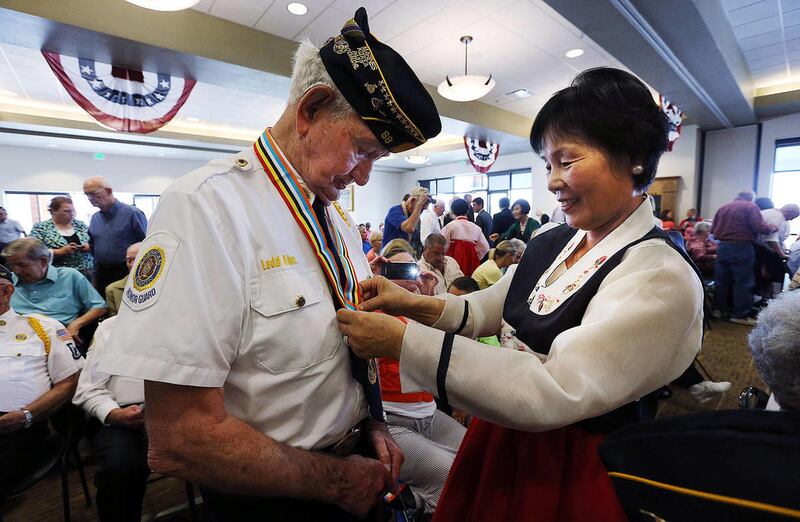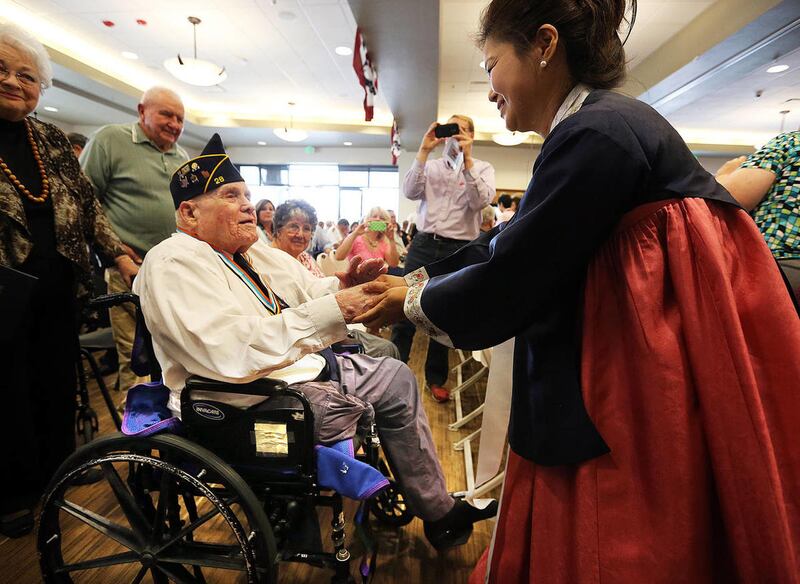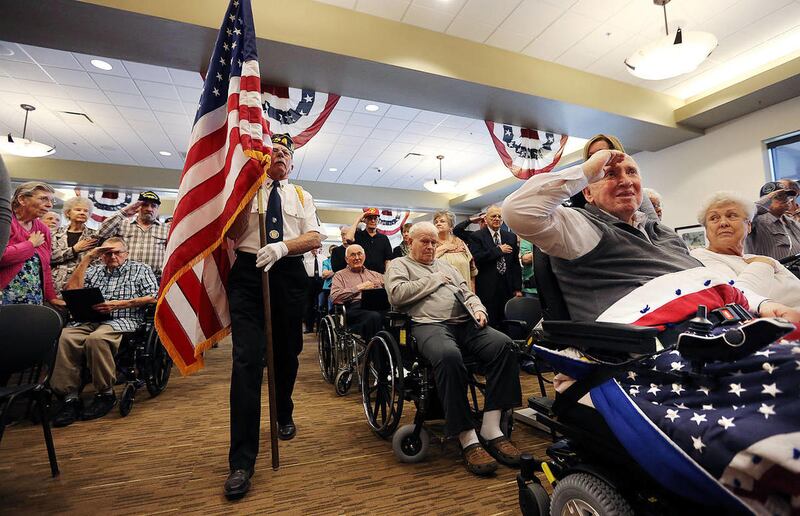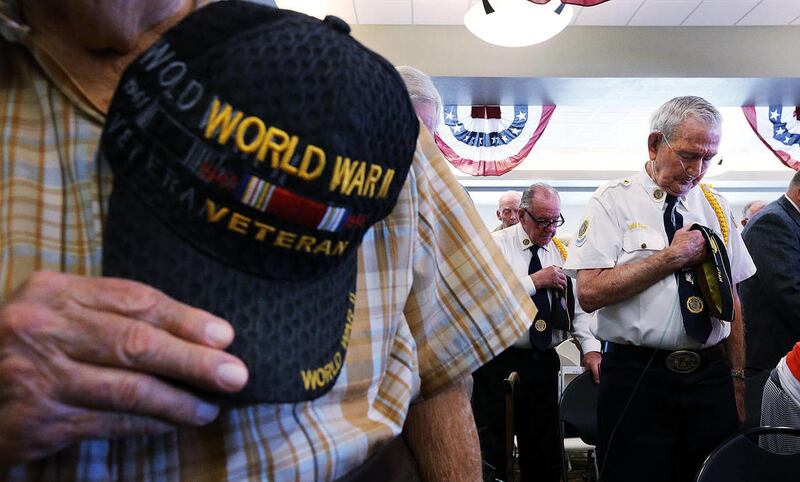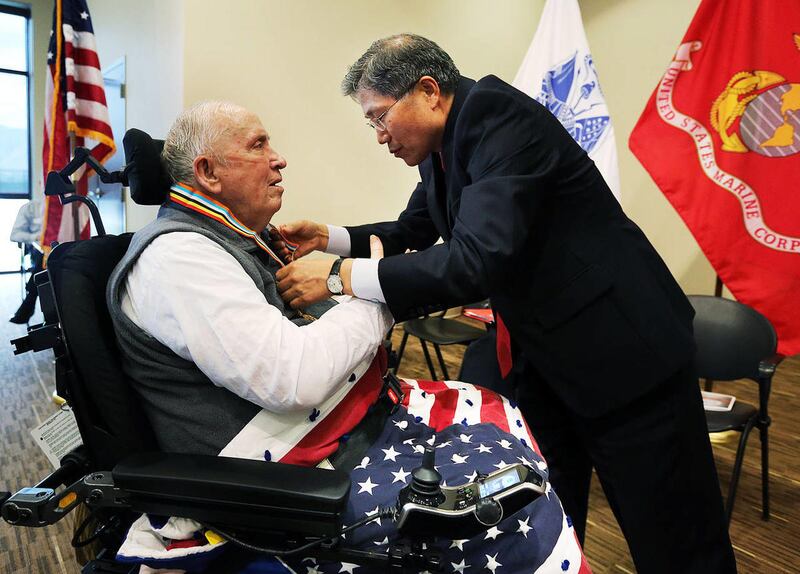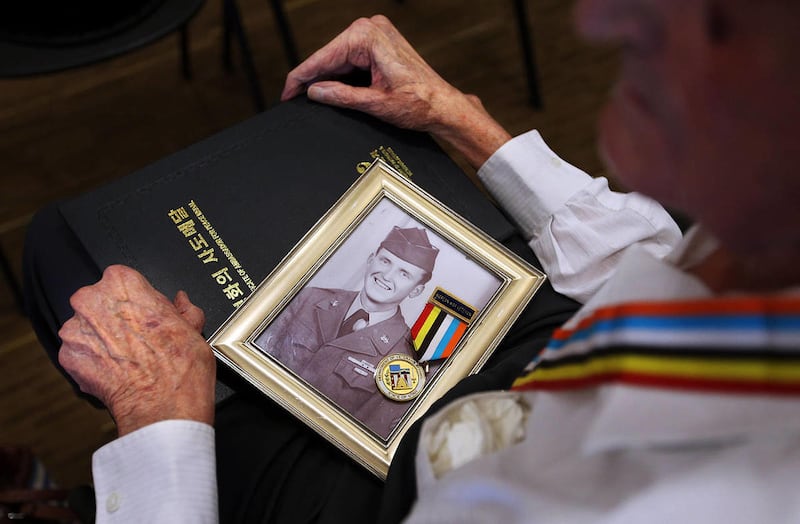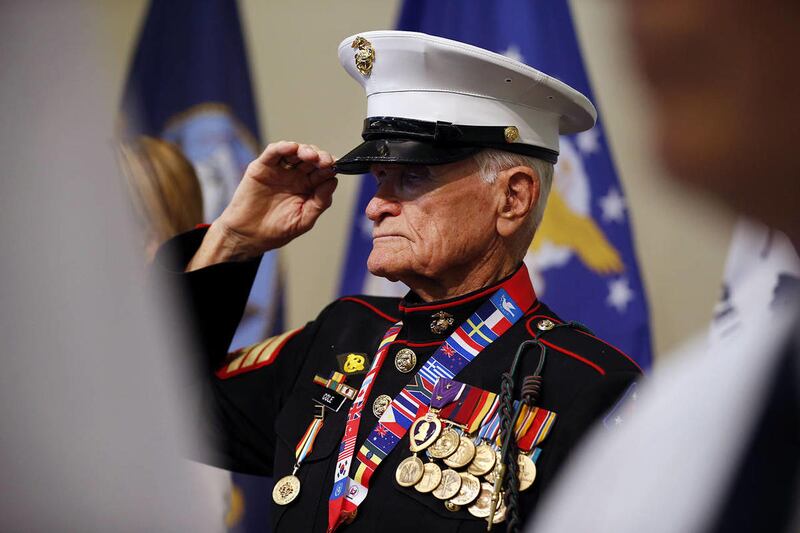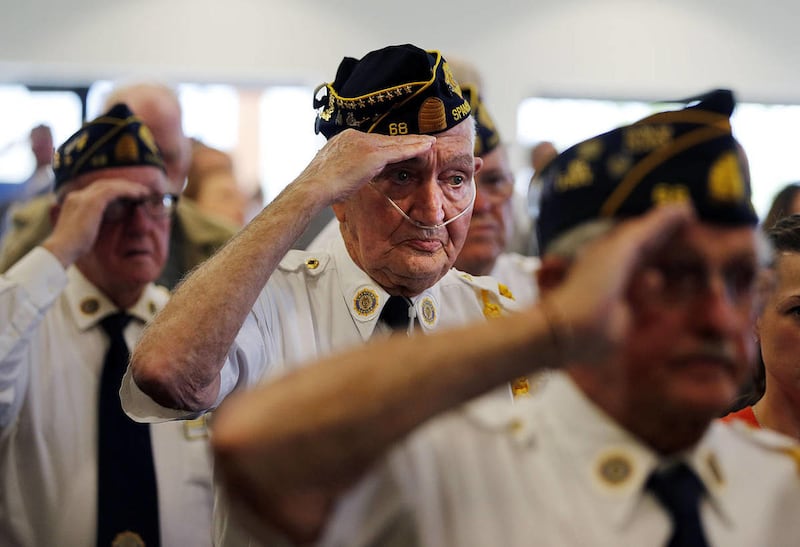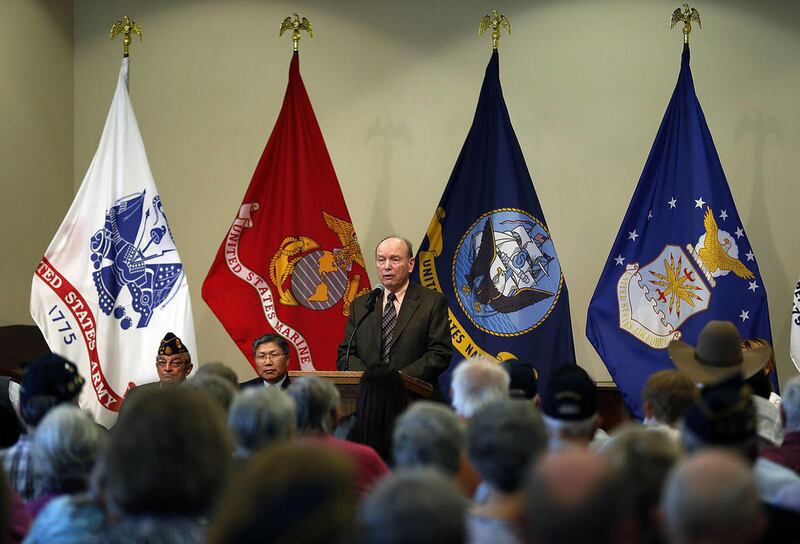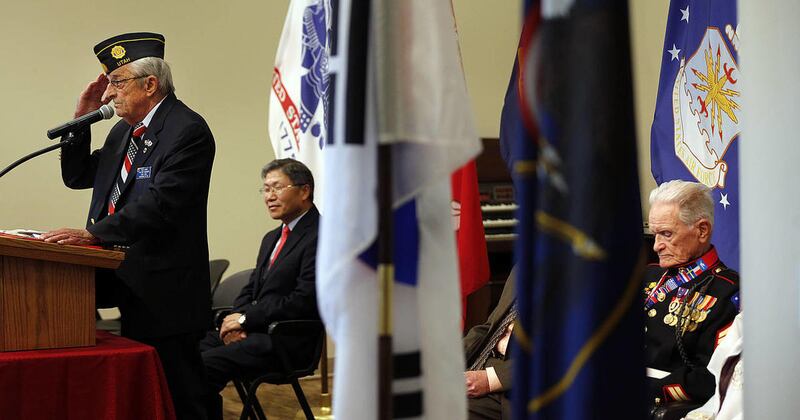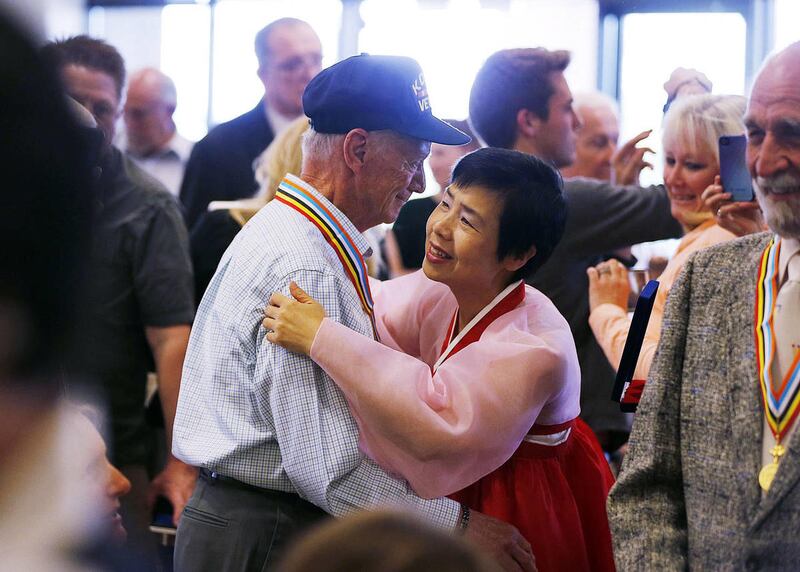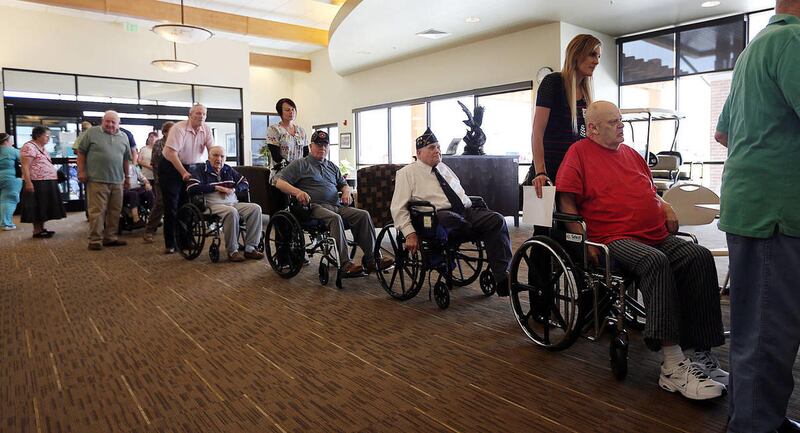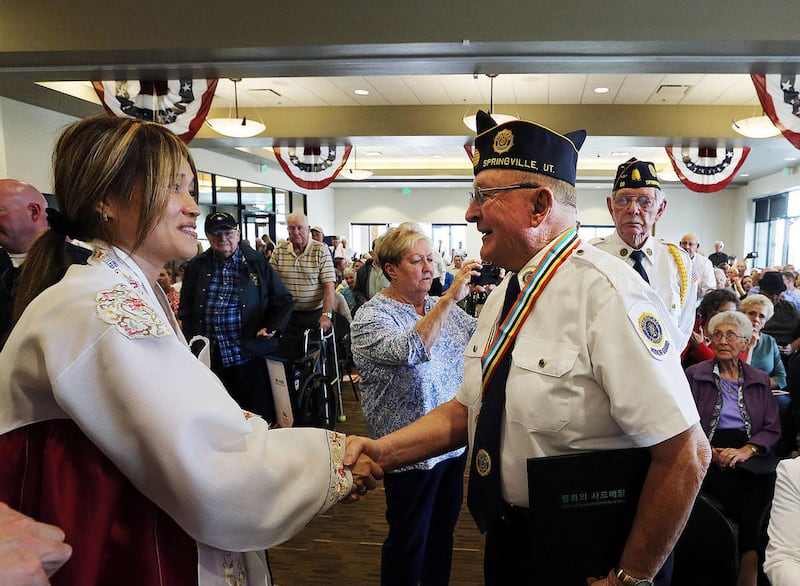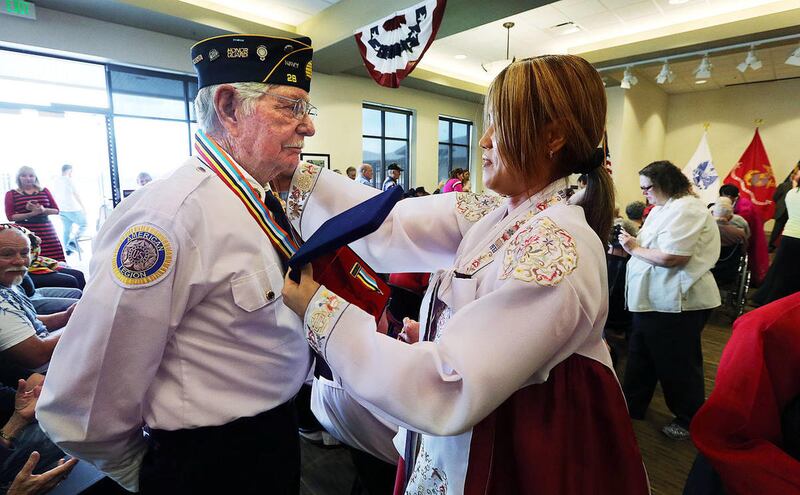PAYSON — More than 100 Utah veterans of the Korean War were named Ambassadors for Peace by the South Korean government Thursday.
In a ceremony at the Central Utah Veterans Home, Consul General Han Dong-Man of the South Korea Consulate in San Francisco thanked the assembled veterans and their families for the role they played in South Korea’s coming of age.
“Without the heroism, valor and sacrifice of these Korean War veterans, our country would not have the peace, prosperity and economic growth that we enjoy today,” Dong-Man said. “That is why you deserve the title of ‘heroes.’”
Traditionally dressed women from the Korean American Federation of Utah took to the aisles to hang medallions around the 117 veterans' necks, as many were unable to rise from their chairs. The medals are made of reforged barbed wire from Korea’s 38th parallel, which marked the border between North and South Korea.
The ceremony was primarily made possible by Marine Corps veteran John Cole, who, upon learning that the South Korean government was interested in presenting service medals to foreign veterans, began locating and qualifying what has now reached more than 1,500 of Utah's Korea veterans.
Thursday’s ceremony was the fourth of its kind, following previous events held in Salt Lake City, Provo and St. George. Including the 117 men recognized in Payson, more than 600 Utah veterans have received the Ambassador for Peace medal. At least 900 more have qualified for recognition at future ceremonies.
“It seems like every single time we have one of these, more veterans hear about it," Cole said. "And the list just keeps growing."
Not to worry, though: Cole said the South Korean government has assured him they will continue the effort until they have recognized every foreign veteran.
This is not South Korea’s first attempt to thank U.S. veterans, who provided nearly 90 percent of the country’s international support. In 2003, Korean officials invited more than 200 American veterans to Seoul to celebrate the 50th anniversary of the war’s cease-fire in 1953.
Army veteran Bert Gividen said the trip was “a real eye-opener.”
“When I saw Seoul in 1953, it was all bombed out," he said. "Nothing was left but the Imperial Palace and cardboard or plywood homes. When I went back in 2003, there were 17 universities, 12 hospitals and 15 major bridges."
The Republic of Korea is now home to 50 million people and the world’s 12th largest economy. The nation ranks first in several industries, Dong-Man said, and has nowhere to go but up.
“We really appreciate, as Korean-Americans and Korean citizens, the sacrifice of these men,” said Solhee Shelley, president of the Korean American Foundation. “Korea would not be country that we are without their sacrifice and help.”
Gividen said the gratitude of the South Korean government has made his time overseas even more meaningful.
“When I was (fighting) in Korea, I wasn’t sure what it was all about,” he said. “Now I can see what we’ve done. We stopped communism and created a great country.”
Email: aoligschlaeger@deseretnews.com
Twitter: @allisonoctober

